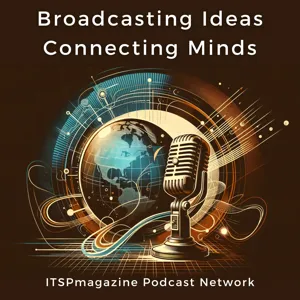Guest: Devorah Heitner, Author
On Twitter | https://twitter.com/DevorahHeitner
Website | https://devorahheitner.com/
On TikTok | https://www.tiktok.com/@devorahheitner1
On Instagram | https://www.instagram.com/devorahheitnerphd/
____________________________
Host: Marco Ciappelli, Co-Founder at ITSPmagazine [@ITSPmagazine] and Host of Redefining Society Podcast
On ITSPmagazine | https://www.itspmagazine.com/itspmagazine-podcast-radio-hosts/marco-ciappelli
_____________________________
This Episode’s Sponsors
BlackCloak 👉 https://itspm.ag/itspbcweb
Bugcrowd 👉 https://itspm.ag/itspbgcweb
Devo 👉 https://itspm.ag/itspdvweb
_____________________________
Episode Introduction
Welcome to another episode of the Redefining Society Podcast, where we muse on the complex interplay of society, technology, and humanity. I am Marco Ciappelli, your guide through this intricate labyrinth. Today, we venture into the pressing reality that our children's lives are ever more public, ever more scrutinized, and ever more entangled with their digital identities. This digital sphere isn't a separate reality; it's an integral part of their lives, shaping their reputations, their self-perceptions, and their futures.
In this digital age, the lines between the online world and "real life" are not just blurred—they are indistinguishable. Our kids grow up with likes, shares, and retweets as measures of their worth, all while wrestling with the big questions of identity and character development. How can they figure out who they really are when every action, every choice, every moment is up for public scrutiny?
My guest today is Devorah Heitner, author of the definitive work "Growing Up in Public," a book that offers a crucial road map for parents to navigate this complex terrain with their children. Heitner uncovers how the digital world has irrevocably changed the rites of passage for our kids, focusing not just on the threats of exposure or cancel culture but the deeper issues of character and authenticity.
Drawing from her extensive work and research—conversations with kids, parents, educators, and experts—Devorah equips us to cut through the digital noise and connect with our children on a meaningful level. Her book provides actionable strategies that emphasize character over consequences, guiding us to support our children as they navigate what it means to grow up publicly, both online and offline.
So, are we bystanders in this digital narrative, or can we actively shape a more compassionate, more nuanced conversation that respects the fusion of technology and human vulnerability?
As technology becomes even more integrated into our real lives, let's question, let's reflect, and let's redefine what it means to grow up in public.
Listen, share, and subscribe!
_____________________________
About the Book
The definitive book on helping kids navigate growing up in a world where nearly every moment of their lives can be shared and compared
With social media and constant connection, the boundaries of privacy are stretched thin. Growing Up in Public shows parents how to help tweens and teens navigate boundaries, identity, privacy, and reputation in their digital world.
We can track our kids’ every move with apps, see their grades within minutes of being posted, and fixate on their digital footprint, anxious that a misstep could cause them to be “canceled” or even jeopardize their admission to college. And all of this adds pressure on kids who are coming of age immersed in social media platforms that emphasize “personal brand,” “likes,” and “gotcha” moments. How can they figure out who they really are with zero privacy and constant judgment? Devorah Heitner shows us that by focusing on character, not the threat of getting caught or exposed, we can support our kids to be authentically themselves.
Drawing on her extensive work with parents and schools as well as hundreds of interviews with kids, parents, educators, clinicians, and scholars, Heitner offers strategies for parenting our kids in an always-connected world. With relatable stories and research-backed advice, Growing Up in Public empowers parents to cut through the overwhelm to connect with their kids, recognize how to support them, and help them figure out who they are when everyone is watching.
_____________________________
Resources
Growing Up in Public: Coming Up of Age in a Digital World (website): https://devorahheitner.com/growing-up-in-public/
Growing Up in Public: Coming Up of Age in a Digital World (Amazon): https://www.amazon.com/Growing-Up-Public-Coming-Digital/dp/0593420969
____________________________
To see and hear more Redefining Society stories on ITSPmagazine, visit:
https://www.itspmagazine.com/redefining-society-podcast
Watch the webcast version on-demand on YouTube: https://www.youtube.com/playlist?list=PLnYu0psdcllTUoWMGGQHlGVZA575VtGr9
Are you interested in sponsoring an ITSPmagazine Channel?
👉 https://www.itspmagazine.com/advertise-on-itspmagazine-podcast

















